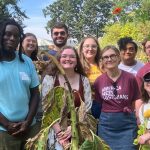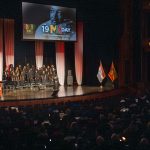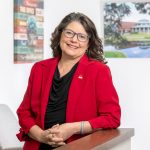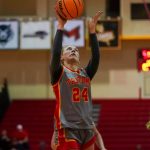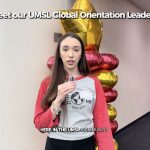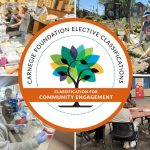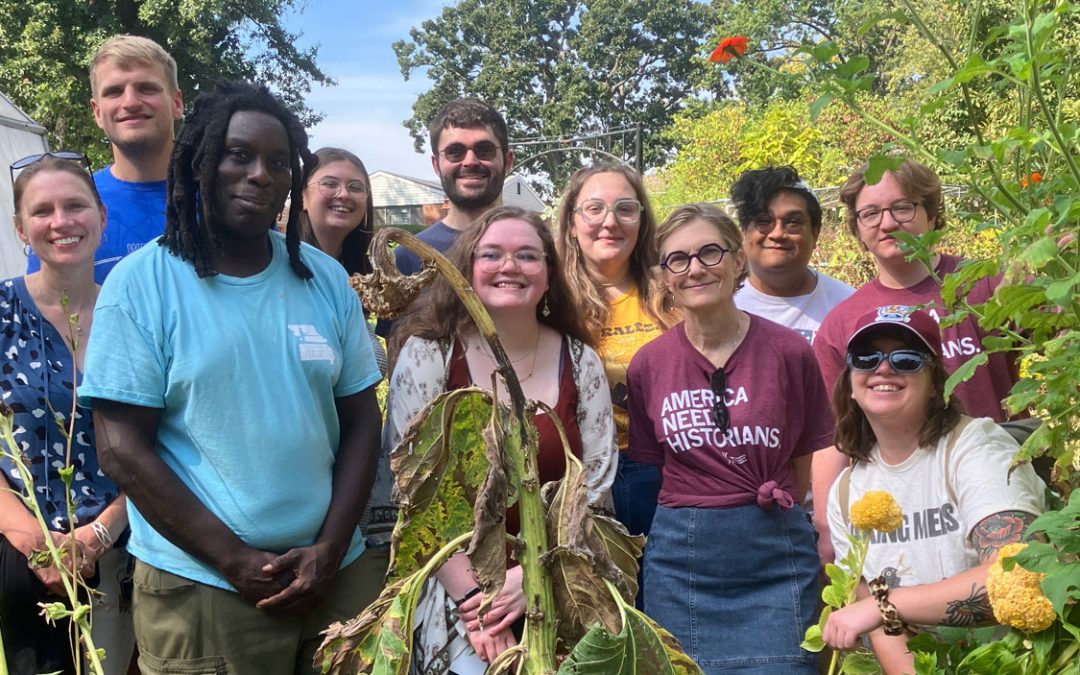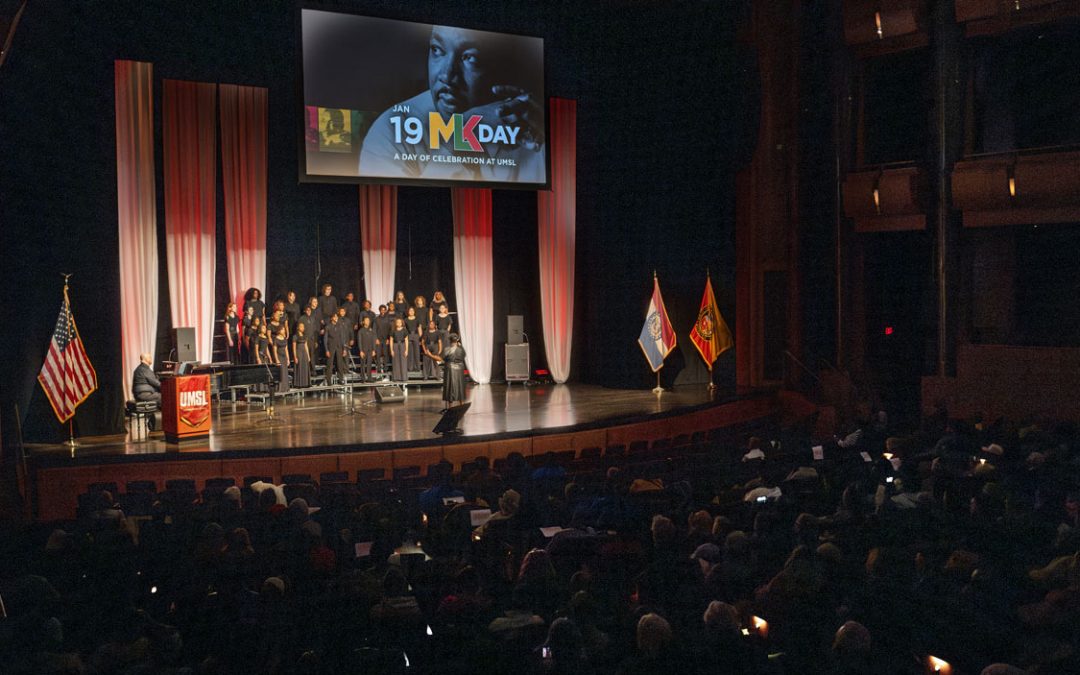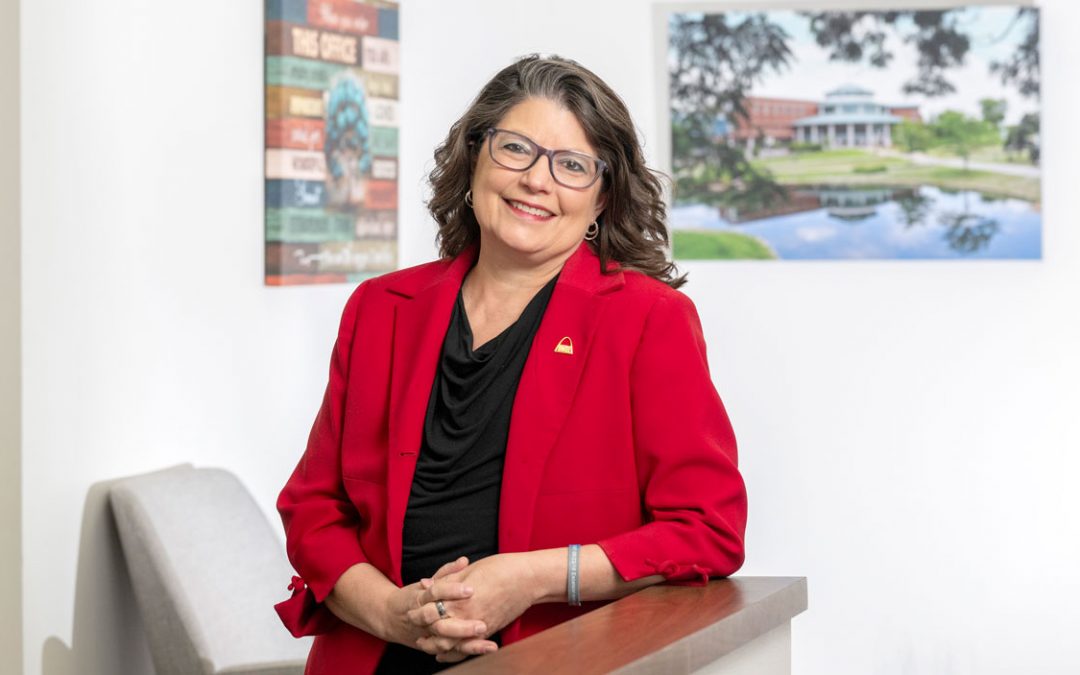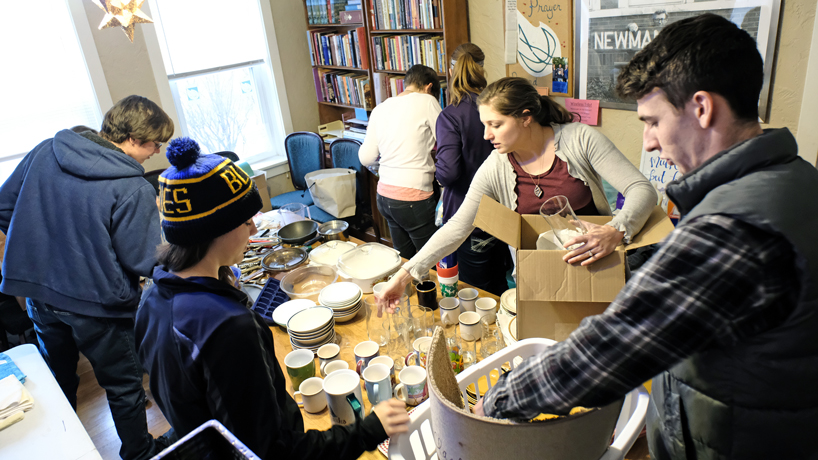
Along with food insecurity, homelessness is a major struggle for many college students across the nation, says UMSL social worker Robin Kimberlin. After learning that the issue impacts even fellow UMSL students, a group of concerned Tritons reached out to Kimberlin’s campus office to see how they could help. (Photos by August Jennewein)
The world and its many problems so often seem both overwhelming and far away. But when a group of University of Missouri–St. Louis students recently learned that some of their own classmates were in need, the situation sparked a sense of urgency.
“It was just so shocking to them – the closeness,” remembers Erin Duffy-Burke, assistant director of the UMSL Catholic Newman Center. “They couldn’t really believe what they were hearing, and a bunch of them right away were like, ‘What can we do? What can we do?’”
As part of a social-justice series, the students she works with had just listened to a graduate assistant’s presentation about homelessness among college students – including some of their fellow Tritons.
“Her talk really had an impact on me,” says junior psychology major Kayla Shane. “We learned that people just like us were suffering so severely, and we immediately wanted to help.”
The presenter – an intern in UMSL’s Student Social Services office – was glad for the response. She and Robin Kimberlin, senior program manager, put their heads together and soon came up with a tangible way that the Newman Center crew could help: move-in kits.
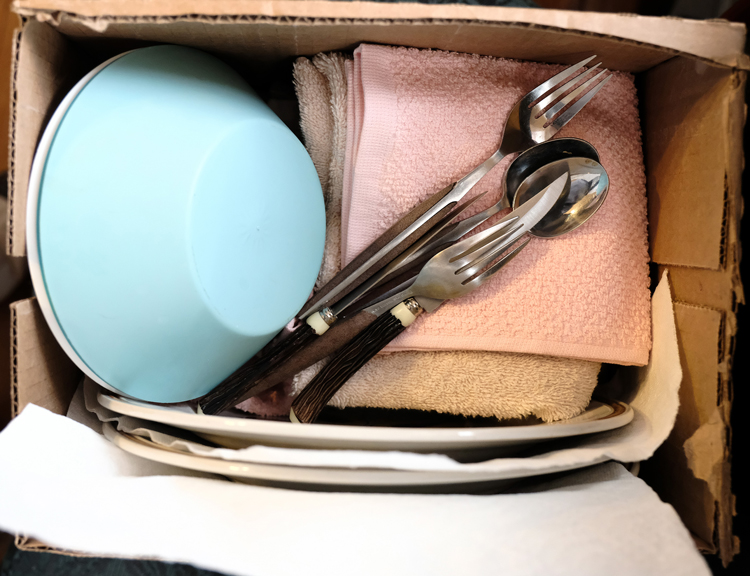
Stocked with everything from silverware to linens, the move-in kits provide key necessities as students are connected to more stable housing situations. St. Ann Parish community members have donated many of the materials that the UMSL Catholic Newman Center students then incorporate into the kits.
Stocked with everything from plates and utensils to a towel and personal hygiene items, the kits have become a go-to resource for Kimberlin and her staff as they address the housing insecurity that a significant percentage of American college students face.
Now, when Student Social Services locates a more stable situation for someone in need among the UMSL student population, the student can move in and immediately have key necessities on hand during the transition.
“What we’re finding is that we use the move-in kits mostly with students who are all of a sudden homeless,” Kimberlin says. “Something’s happened and they’re unexpectedly homeless, and we’re immediately able to place them. Just before winter break, for example, we had two students who went from a motel situation to more stable housing, and we got two kits for them. They did have some things, but in a motel your sheets and linens are provided, and so they didn’t have those.”
She notes that roughly a third of the students who visit or are referred to her office are dealing with some form of housing instability.
“It can be anywhere on the spectrum from ‘I’m living in an abandoned building and still coming to classes’ to ‘I am just couch surfing on different relatives’ or friends’ couches,’” Kimberlin explains. “And that might seem more stable than an abandoned building, but when you look at it through the lens of trying to be a student, it’s really devastating. For that individual, at any moment they could be put out.”
Along with food insecurity, homelessness is one of the two biggest problems she sees students facing.
That comes as a surprise to many people, but not to Kimberlin and her staff, whose work is focused at the intersection of higher education, social work and access.
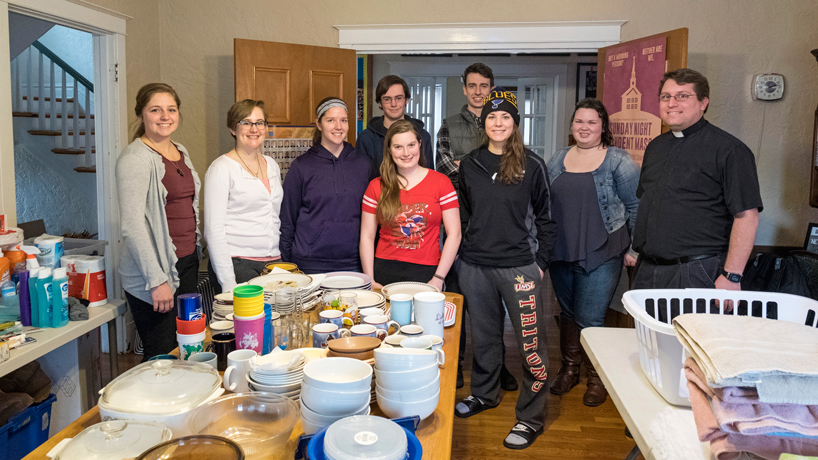
On Jan. 26, a Newman Center crew worked together to create 27 more move-in kits for UMSL’s Student Social Services office to have on hand. Among the volunteers were (from left) Mary Beussink, Lucy Ellermann, Carolyn Kuenzel, Matthew Klein, Laura Jenkins, Charles Moody, Ashlyn Bucher, Mary Grace Phillips and Nick Winker.
“It’s not an UMSL problem – it’s a problem that the entire nation is noticing,” Kimberlin says. “And it’s probably always been there to some degree, but there’s also been a lot of attention in the past decade to increasing access to education among the general population.
“When we look at the numbers, it’s very reflective of the communities that people are coming from. Our numbers at UMSL are very comparable to the St. Louis area.”
Kimberlin’s passion for connecting students to various resources – and for the priceless value of higher education – keeps her eager to be of service rather than pessimistic.
“If we can help the most vulnerable students succeed, the difference that a college education can actually make is so dramatic,” she says.
Meanwhile, the Newman Center students are glad to play a part in helping their peers – and just a few days ago they put together 27 more move-in kits for Student Social Services to have on hand.
“I think what we are doing is great, and I want to continue,” says Shane. “However, the most important aspect of the project is exposure. Our wish is to show the world how severe the issue is and get more people to fight for them and help the cause.”
Shane adds that she and fellow UMSL students have also started creating smaller kits that they keep in their cars to have ready when they are out and about around the city.
“We fill baggies with essential items such as snacks, gloves and toothbrushes so that we always have some way to help,” she says.
Duffy-Burke views the students’ efforts as a welcome embodiment of one of the Newman Center’s central focuses.
“Service and social justice is something we talk about all the time – it’s one of our cornerstones,” she says. “If we’re not doing that, then what’s the point?”
Editor’s note: If you or someone you know at UMSL is struggling with homelessness or any type of housing issue, please reach out for support. You can request assistance via the Student Social Services website or by emailing kimberlinrm@umsl.edu.


